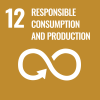These days, it is common to endorse fashion influencers. Endorsement is an advertisement that uses a person’s popularity and access to consumers through many social media followers. Besides that, fast fashion is a textile industry that works with a completely linear flow, meaning that they extract mostly non-renewable resources to produce clothing.
UGM students Yoga Aditya Leite (Philosophy 2018), Moch Zihad Islami (Philosophy 2018), Dian Aris Munandar (Philosophy 2018), Yuana Novita Sari (Science of Communication 2019), and Adelia Stefani Putri Kristanti (Psychology 2019) explore the implications of endorsing fashion influencers on consumerism towards fashion in their study entitled “Implications of Endorsing Fashion Influencers on Fast-Fashion Consumerism in Indonesia” as part of the UGM Student Creativity Program (PKM) for Social Research Humanities (RSH).
“It is interesting to see the development of consumer-oriented fashion, with fashion influencers making the reproduction of fast-fashion trends in Indonesia survive. Philosophically, this causes a system that forces individuals as consumers (subconsciously or consciously) to feel alienated. Thus, they buy these fashion products impulsively,” said Yoga Aditya Leite.
Yuana Novita Sari said that, in communication studies, Indonesian fashion influencers use persuasive communication to influence consumers to endorse fast fashion. The concept of persuasive communication that is carried out is communication rhetoric (Ethos, Logos, and Pathos). These three things become pillars of persuasive communication which is an important part of the role of influencers.
When explaining the research findings, Moch Zihad Islami revealed that the feelings of wearing the same clothes as fashion influencers can increase consumption levels even though these feelings are pseudo because each person has different physical and psychological characteristics.
The implication of this research indicates that there are four parties with an interest in managing the rate of sustainable consumption. These include consumers with purchasing rationality, producers with awareness of environmental conservation, government with a supervisory authority, and fashion influencers through popularizing slow fashion trends and environmentally friendly clothing.
Source: https://www.ugm.ac.id/id/berita/21702-mahasiswa-ungkap-fenomena-endorse-fashion-influencer



